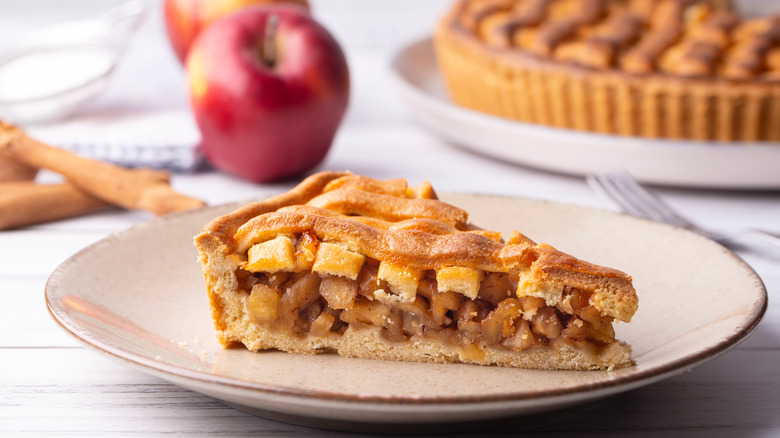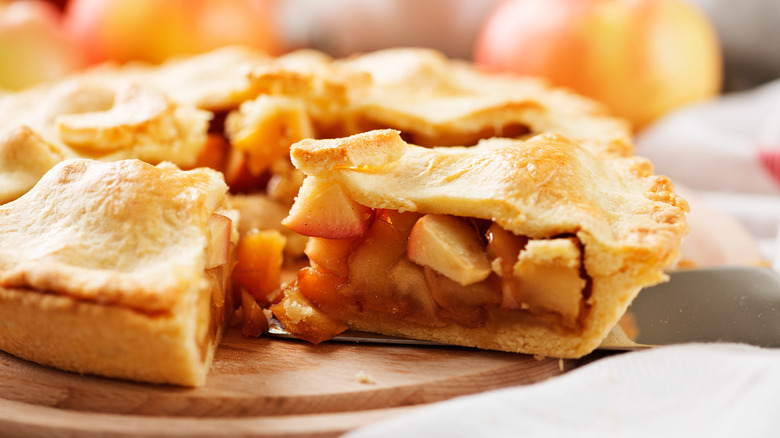Why You Shouldn't Let Apple Pie Dough Sit Overnight
The art of baking an apple pie is one that can be both simple and rewarding, or an enormous waste of time. While the concept seems simple enough — it's just apple filling dumped inside a pie crust and baked until golden and bubbling, right? — you run the risk of running into a variety of hidden dangers during the process. The flaky pie crust might become a doughy, cakey mess; the bottom of the pie could be stuck to the pan; the filling may burn into charcoal. Really, all of these mistakes can happen to anyone if they aren't careful when baking.
Fortunately, there are plenty of tips and suggestions that can help ensure that your apple pie-making endeavors don't end up as a sticky embarrassment. For example, Serious Eats suggests that you "par-cook" your apples before adding them to the pie to ensure they hold their shape. And The Kitchn recommends brushing down the interior of the pie crust with an egg wash to prevent the hot apple juice from turning the bottom of the crust into a wet mess that sticks to the pan.
In case you're looking for a pie crust that's both incredibly flaky from both top to bottom, then perhaps it's better to skip out on waiting until tomorrow to finish baking the pie. In fact, you probably don't want to let it sit overnight for this important reason.
Skip refrigerating your dough overnight if you want a flaky crust
According to French Laundry founder Thomas Keller, per RealSimple, the act of leaving your dough to chill overnight can result in a crust that's far less flaky than you'd expect for a classic apple pie. By letting the dough sit overnight, Keller explains, the dough will thicken and become incredibly firm. When the time comes to roll it out to bake the pie, you will not only find yourself struggling a bit more to get the dough flat, but you also run the risk of compounding all the fats and flour. As fats are key to helping create a flaky crust through the evaporation process, leaving those little air pockets, the combination of fats and flour means you'll get less of those pockets and a less flaky crust.
But hold on. In the very same article, Keller says that it's important to keep everything cool. So, wouldn't it be counterintuitive to make sure the dough isn't cold? While it is important to keep your ingredients and your kitchen cool, this is done to keep the butter, fats, and other certain ingredients from melting during baking. You can chill your dough if you so like, but it's recommended to leave it in the fridge for only an hour or so, and then prepare the pie the same day you're going to bake it. So, get ready to commit to making the pie today to have the best results!

